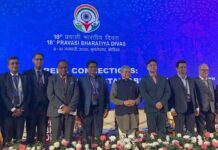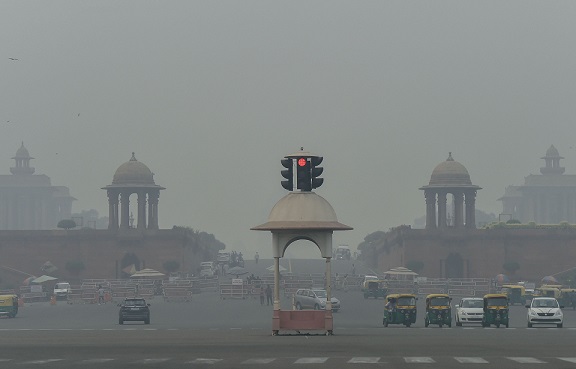By Our Correspondent
NEW DELHI: The Commission for Air Quality Management in NCR & Adjoining Areas (CAQM) has formulated a Comprehensive Policy to abate the menace of air pollution in Delhi-NCR, in a crucial step towards overall amelioration of the air quality of the National Capital Region (NCR) through differentiated geographical approach and timelines of action. This policy contains sector-wise recommendations for Agencies and Departments of Central Government, NCR State Governments and GNCTD along with Central Pollution Control Board (CPCB) and State Pollution Control Boards (PCBs) of NCR to prevent, control and abate air pollution in the NCR including industries, vehicles/ transport, construction and demolition (C&D), dust from roads and open areas, municipal solid waste burning, crop residue burning etc. The policy framed by CAQM also deals with thermal power plants (TPPs), clean fuels & electric mobility, public transportation, road traffic management, diesel generators (DGs), bursting of fire crackers and abating air pollution through greening and plantation.
The scope of this comprehensive plan by CAQM is to abate air pollution primarily in Delhi and NCR. Owing to a deficit in infrastructure and systems across sub-regions of the NCR, wide variations in baseline actions, and varying levels of urbanization, a differentiated approach and timelines have been suggested for various sub-regions. These sub-regions include:
The National Capital Territory (NCT) of Delhi
The NCR districts near Delhi — Gurugram, Faridabad, Sonipat, Jhajjar, Rohtak, Ghaziabad, Gautam Buddha Nagar and Baghpat.Other NCR districts. The entire state of Punjab and the non-NCR districts of Haryana, primarily for addressing episodic events of stubble burning
The Hon’ble Supreme Court of India in its order dated 16.12.2021 in WP (Civil) No 1135 of 2020 in the matter of Aditya Dubey (minor) and Anr v/s UOI & Ors. had directed CAQM that with a view to “find permanent solution to the air pollution menace occurring every year in Delhi and NCR, suggestions may be invited from the general public as well as the experts in the field”.
Further, pursuant to the directions of Hon’ble Supreme Court, the Commission vide order dated 7.1.2022 constituted an Expert Group. The Expert Group considered the suggestions received, interacted with interveners and experts as well as various stakeholders and State Government representatives. The Expert Group apart from taking into account the suggestions received also reviewed and examined the existing scientific literature, relevant policies, regulations, programmes and funding strategies of the Central and State Governments in various sectors, the current status of action and best practice approaches. Suggestions received were from civil society, research bodies, industry, experts, academia, individuals, etc. and related to mitigation in the key sectors of air pollution, air quality management, monitoring framework and institutional strengthening for implementation.
The scope of this multi-sector assessment included industries, power plants, vehicles and transportation, diesel generator sets, dust sources like construction/demolition projects/roads and open areas, municipal solid waste/biomass burning, episodic events like stubble burning, firecrackers and other dispersed sources. The inputs and suggestions received in a series of stakeholder consultations were incorporated appropriately in the relevant sections and this participatory approach has enriched the exercise of suggesting a comprehensive policy to curb air pollution in Delhi-NCR.
The Expert Group, considering the issues and complexities involved, has suggested short-term (up to one year), medium term (one-three years), and long term (three-five years, preferably) actions. This timeframe is further differentiated for different sub-regions/areas/districts/cities to provide the space for all to transform to meet the common air quality goal. Broadly, the critical areas of transformation aimed for meeting the national ambient air quality standards include:
Widespread access to affordable clean fuels and technology in industry, transport and households.Mobility transition including through mass transit, electrification of vehicles, building walking and cycling infrastructure and reducing personal vehicle usage etc.
Circular economy for material recovery from waste to prevent its dumping and burning.
Dust management from C&D activities, roads/Right of Ways (RoW) and open areas with appropriate technology, infrastructure and greening measures.Strict time-bound implementation, improved monitoring and compliance.
The Commission has already shared this policy with the Central Government Ministries / Departments, NCR State Governments, GNCTD and various agencies for taking comprehensive action on the policy to curb air pollution in NCR.



























